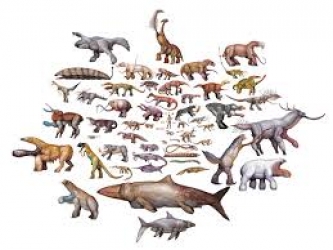scientist (n)
/ˈsaɪəntɪst/
nhà khoa học
someone who is trained in science, especially someone whose job is to do scientific research

theory (n)
/ˈθɪə.ri/
lý thuyết, giả thuyết
a formal statement of the rules on which a subject of study is based or of ideas that are suggested to explain a fact or event

conclusion (n)
/kənˈkluʒn/
kết luận
something that you decide when you have thought about all the information connected with the situation

observation (n)
/ˌɑbzərˈveɪʃn/
sự quan sát
the act of watching someone or something carefully for a period of time, especially to learn something

astronomy (n)
/əˈstrɒn.ə.mi/
thiên văn học
the scientific study of the stars, planets, and other objects in the universe

react (v)
/riˈækt/
phản ứng (hóa học)
(chemistry) to experience a chemical change when coming into contact with another substance

knowledge (n)
/ˈnɒl.ɪdʒ/
kiến thức
understanding of or information about a subject that you get by experience or study

nature (n)
/ˈneɪtʃər/
tự nhiên
all the plants, animals, and things that exist in the universe that are not made by people

laser (n)
/ˈleɪzər/
tia la-de
a very strong line of light that can be used for cutting metal, in medical operations, etc.

robot (n)
/ˈrəʊ.bɒt/
người máy, rô bốt
a machine controlled by a computer that is used to perform jobs automatically

automation (n)
/ˌɔt̮əˈmeɪʃn/
tự động hóa
the use of machines to do work that was previously done by people


































 Hãy đăng ký thành viên và đăng nhập để sử dụng chức năng này!
Hãy đăng ký thành viên và đăng nhập để sử dụng chức năng này!
Bình luận